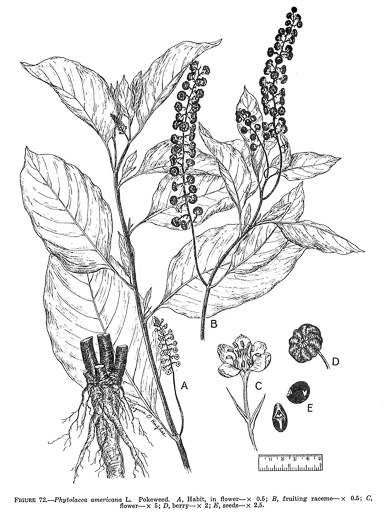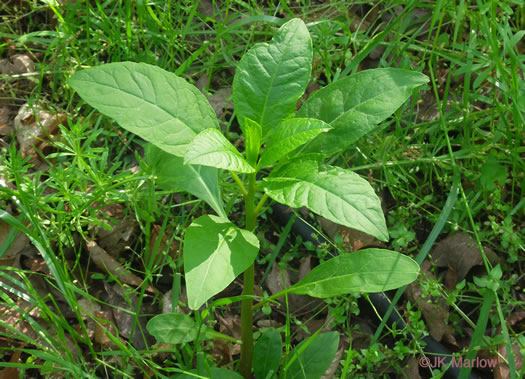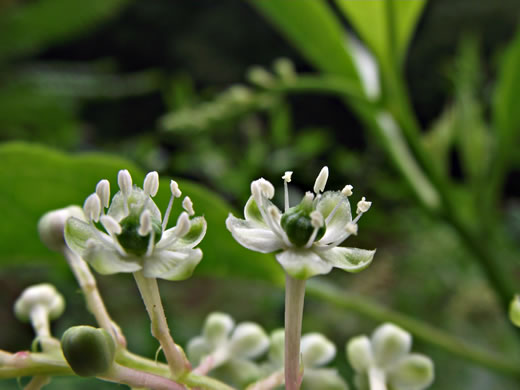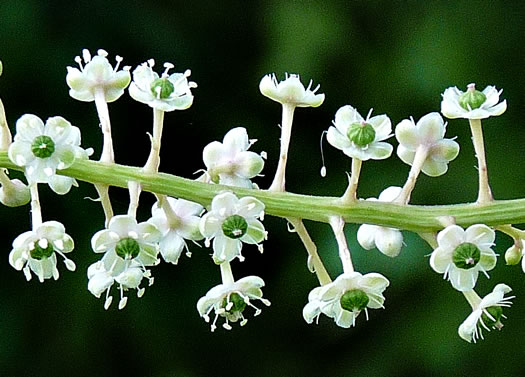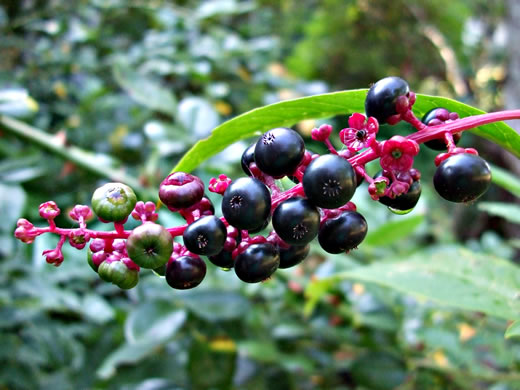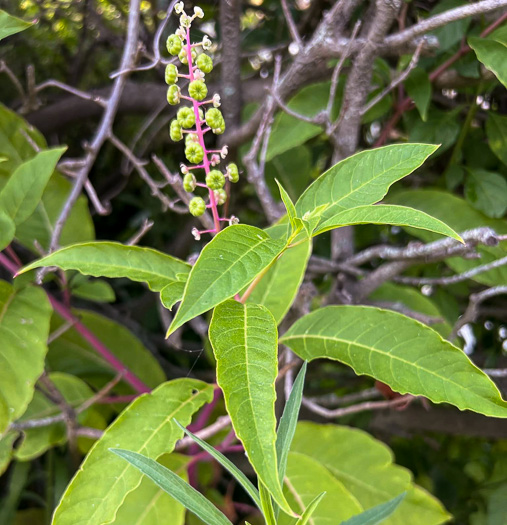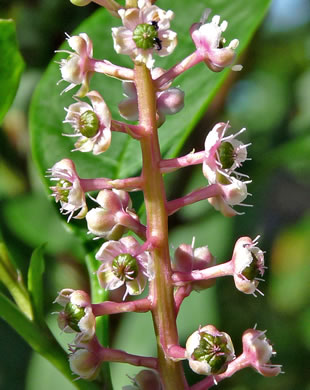Hovering over an image will enlarge it and point out features (works better on desktop than on mobile).
![]() A camera indicates there are pictures.
A camera indicates there are pictures.
![]() A speaker indicates that a botanical name is pronounced.
A speaker indicates that a botanical name is pronounced.
![]() A plus sign after a Latin name indicates that the species is further divided into varieties or subspecies.
A plus sign after a Latin name indicates that the species is further divided into varieties or subspecies.
Most habitat and range descriptions were obtained from Weakley's Flora.
Your search found 2 taxa in the family Phytolaccaceae, Pokeweed family, as understood by PLANTS National Database.

![]()
![]() Common Name:
Common Pokeweed, Poke
Common Name:
Common Pokeweed, Poke
Weakley's Flora: (4/24/22) Phytolacca americana FAMILY: Phytolaccaceae
SYNONYMOUS WITH PLANTS National Database: Phytolacca americana var. americana FAMILY: Phytolaccaceae
INCLUDED WITHIN Vascular Flora of the Carolinas (Radford, Ahles, & Bell, 1968): Phytolacca americana 068-01-001 FAMILY: Phytolaccaceae
Habitat: In a wide variety of natural and disturbed habitats, usually associated with exposed mineral soil
Common (uncommon in SC Coastal Plain, rare in GA Coastal Plain)
Native to the Carolinas & Georgia

![]() Common Name:
Maritime Pokeweed
Common Name:
Maritime Pokeweed
Weakley's Flora: (4/24/22) Phytolacca rigida FAMILY: Phytolaccaceae
SYNONYMOUS WITH PLANTS National Database: Phytolacca americana var. rigida FAMILY: Phytolaccaceae
INCLUDED WITHIN Vascular Flora of the Carolinas (Radford, Ahles, & Bell, 1968): Phytolacca americana 068-01-001? FAMILY: Phytolaccaceae
Habitat: Dune slacks, dune slopes, edges of tidal marshes, disturbed areas on barrier islands, xeric sandhills near the coast
Uncommon in GA, rare in Carolinas
Native to the Carolinas & Georgia
Your search found 2 taxa. You are on page PAGE 1 out of 1 pages.

